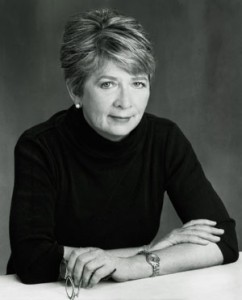Barbara Ehrenreich
GUEST CONTRIBUTOR
By the time I was in my mid-teens my family had achieved middle class status and I was able to go to Reed College in Portland, Oregon. I started out majoring in chemistry but after a couple of years decided I would only get to the bottom of things with physics. I did well enough to get into grad school at Rockefeller University in theoretical physics. But within a year I realized I was gravely under-prepared and switched to molecular biology, and from that to cell biology.
With the birth of my first child in 1970, I underwent a political, as well as a personal, transformation. Bit by bit, I got involved with what we then called the "women's health movement," advocating for better health care for women and greater access to health information than we had at that time. This new concern led to the "underground bestseller," a little pamphlet called Witches, Midwives, and Nurses: A History of Women Healers, co-authored by my friend Deirdre English.
A couple of years later I made the rash decision to quit my teaching job at the State University of NY, Old Westbury and become a full-time writer. Financially rough times followed. My big break was a feature story for Ms. magazine on the myth that feminism causes heart disease. It became a cover story, and more assignments followed. In the eighties I had columns in Ms. and Mother Jones, and was beginning to break into some more "mainstream" publications.
One of my major projects as a journalist now is the Economic Hardship Reporting Project, which I instigated in 2011. We promote cutting edge journalism about poverty by recruiting journalists (very often poor themselves), helping them define their projects, and raising money to pay them for their work.
My latest book represents a sharp departure from my earlier work. In the spring of 2001, I was presented with the unnerving task of assembling my papers for storage in a university library. The timing of this forced review of my life could not have been more viciously appropriate, since I was in the midst of treatment for breast cancer and facing the possibility of a somewhat earlier death than I had expected.
There was only one thing I held back from the outgoing cardboard boxes—a thick reddish folder or envelope of the old-fashioned kind, tied by a string. I knew, roughly speaking, what was in the journal, and that it records an adolescent experience that was so strange, so cataclysmic, that I never in all the intervening years wrote or spoke about it, if only because I was afraid of being judged insane. I decided then that, if I recovered from cancer, I would have to revisit that uncanny experience, put it in context, and try, finally, to understand what had happened. The result is my latest book, Living With a Wild God: An Unbeliever's Search for the Truth about Everything, which is a sort of philosophical memoir or even, I like to think, a metaphysical thriller.
